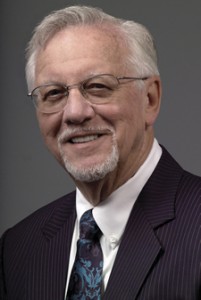As New York and Massachusetts appear on the verge of legalising commercial casinos, Robert Faiss tells InterGaming about the current legal landscape


What do you believe are the key political and legal obstacles facing the attempts to bring commercial casinos to new states?
Each US state has sovereign authority to decide which forms of gambling, if any, are to be allowed. One positive for casino proponents seems to be that the basic question has shifted from 'why should our state have casinos?' to 'why shouldn't our state have casinos?' What has been decided with regard to commercial casinos in one state is not necessarily any guide to what will be decided in a neighboring state.
Usually the more serious the problems of unemployment and state government treasury deficits are, the more likely it is that a new gaming industry will be authorised. Another incentive is to stop the loss of revenue when the citizens of a state that has no casinos spend their leisure time in a state next door that does. However, despite its great success overall in enhancing employment, investment and tax revenue in compliance with law, casinos still face opposition from various constituents of elected state officials on the basis of morality and the fear of social costs such as problem gambling and crime.
Although I believe there has been a steady improvement in the overall perception of casinos in the US, because of their record of honesty and improvement of jurisdictions' employment, infrastructure and tourism and tax revenue, there are still various elements of opposition that must be overcome in any effort to legalise them in a new place. There is a general political rule that the more difficult or contentious a problem is, the less likely it is to be solved in an election year, now just a few months away.
Will laws to introduce commercial casinos impact tribal gaming compacts in those states?
There is no uniform answer to that question. It will depend on the state, as tribal gaming compacts in one state may be dissimilar to those in another state. The benefit from tribal gaming in a state may be based on a gaming exclusivity provision in the compact. Such a provision obviously presents problems where commercial casinos are authorised to compete with tribal casinos. Any resolution will involve relevant language in the governing compact.
Do you anticipate any progress at either state or federal level in moving towards some form of legalised internet gaming in the near future?
Yes, at both levels. I believe only the change of control of the US House of Representatives at the beginning of 2011 stopped introduction of a comprehensive internet poker bill that would have had a reasonable chance of passage. What has happened is that the negotiations to develop an acceptable bill in 2010 have resulted in components that seem to have become basics in internet legislation being introduced or discussed in 2011.
In my view, the time line for legalisation of internet wagering by Congress is uncertain but such legalisation is inevitable. The US Department of Justice response to the July 14 letter from Senators Harry Reid and Jon Kyl will influence state government action in this area.
If the response is that federal law prohibits licensed online wagering solely within the borders of a state, there is going to be a good deal of pressure from a number of states to change that law. If the response is that the federal law allows intranet wagering, that should help spur current efforts in such states as Nevada, California and New Jersey to establish such systems.
What do you believe will be included in any forthcoming online gaming legislation by the US Congress and how will the player protection argument compare with that of revenue generation?
Any federal legislation will have to contain comprehensive provisions about such issues as the division of federal, state and tribal responsibilities and benefits, the taxation structure, the licensing process, regulatory standards, the suitability of operators and others involved in the industry, the treatment of prior US market participants and their assets and player protection.
A key will be balancing these issues in a way that allows members of such a regulated industry to compete with those operating outside the regulated system. With regard to the comparison of player protection to revenue generation, they both are important but not mutually exclusive. Like any other aspect of this debate, each may resonate differently with members of Congress.

